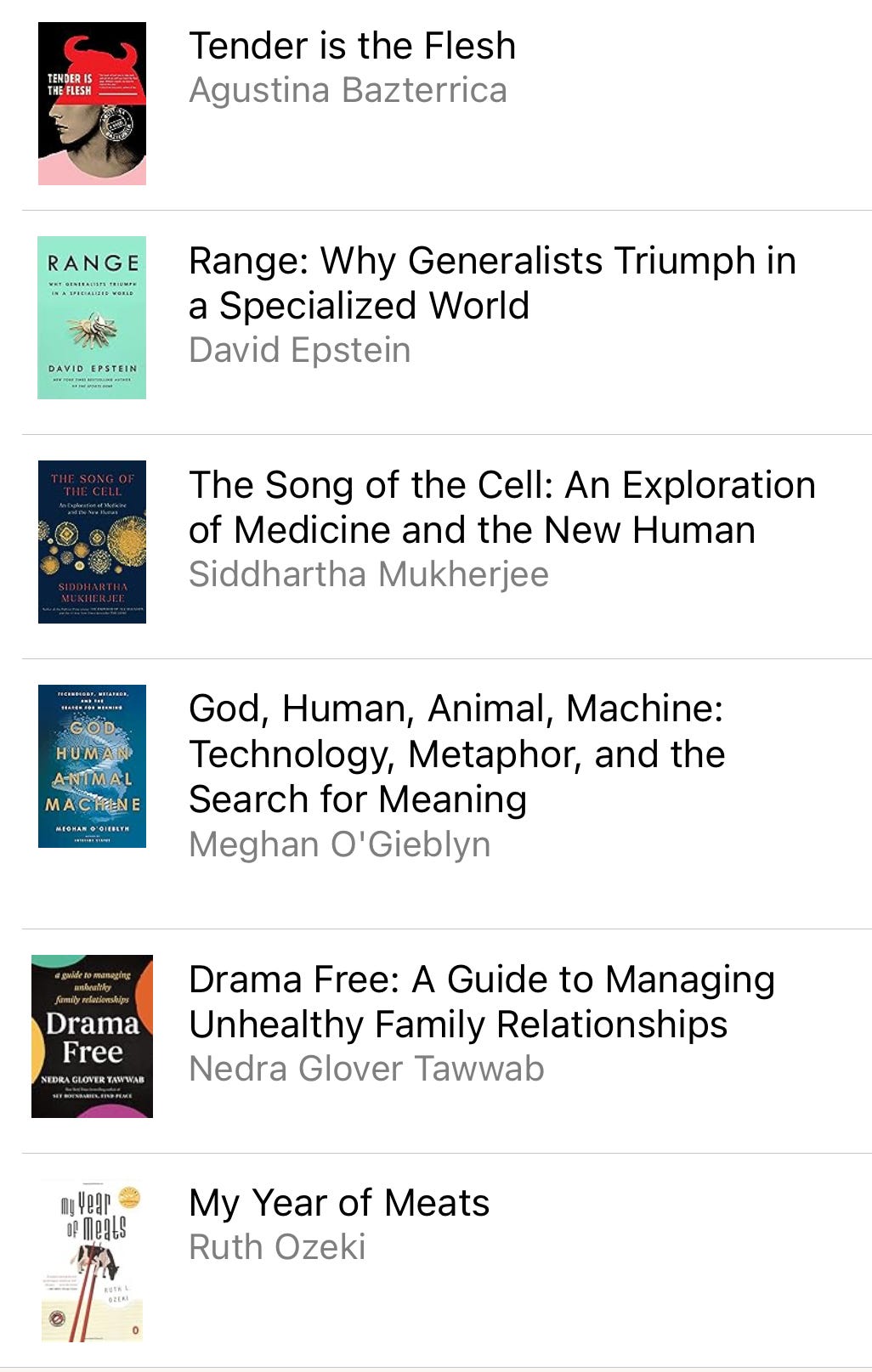The Science of New Year's Resolutions
Exploring why we make them and how to keep them
Welcome to 2024, everyone! 🍾 I hope you’ve enjoyed the holidays and were able to ring in the New Year with friends and family 🥳
As the confetti settles and the last echoes of "Auld Lang Syne" fade away, many of us find ourselves scribbling down a list of New Year's resolutions. But have you ever stopped to wonder why we make these annual pledges and why they often seem destined to fail?
Let's put our scientific hats on to figure out what derails us and how we can do a better job keeping them! 🤓
An Ancient Tradition
If you’re like many people, come the end of December your thoughts often gravitate towards change and self-improvement. New Year's resolutions are deeply embedded in our culture and psyche. This time-honored tradition is a universal phenomenon and such promises have ancient roots:
“The ancient Babylonians are said to have been the first people to make New Year’s resolutions, some 4,000 years ago. They were also the first to hold recorded celebrations in honor of the new year… During a massive 12-day religious festival known as Akitu, the Babylonians crowned a new king or reaffirmed their loyalty to the reigning king. They also made promises to the gods to pay their debts and return any objects they had borrowed. These promises could be considered the forerunners of our New Year’s resolutions. If the Babylonians kept to their word, their (pagan) gods would bestow favor on them for the coming year.”
This tradition wasn't just a Babylonian thing. The Romans, early Christians, and Jewish people had their own ways of reflecting and renewing promises at the year's start. Fast forward to today, and you'll see echoes of this in various cultures around the world: the Chinese New Year features spring cleaning and sharing red envelopes containing money for luck, Hindus light up their homes during Diwali celebrating goodness, and in Thailand, the Songkran festival has everyone dousing each other in water to wash away the old year's misfortunes.
So, when you jot down your resolutions, remember – you're part of an ancient, global ritual of self-improvement and fresh starts!
The Harsh Truth: Most Resolutions FAIL
Resolutions are more than mere wishes; they reflect our brain's craving for a fresh start. The most common resolutions involve losing weight, improving diet, and getting more exercise. Other common ones include saving more money, getting more sleep, or cutting down on vices like alcohol or smoking

Despite our best intentions, a staggering 91% of people fail to keep their resolutions! In fact, 43% of people give up by February. Some data from the fitness tracking company Strava even suggests 80% of people will give up their exercise goals by January 19th!!
This bleak success rate often stems from setting overly ambitious goals or not having a clear plan. Resolutions like "lose weight" or "be nicer" are too vague. Instead, we need to be specific in our intent and realistic in our expectations. According to Psychology Today, resolutions that align with our core values and are actually attainable tend to have a higher success rate.
Strategies from Neuroscience
Our brains are wired to seek immediate rewards, not distant, abstract goals. Furthermore, we enjoy the idea of effort but find the actual effort uncomfortable, leading to a disconnect from our future selves and an inherent bias towards the present.
This "cognitive laziness" leads us to repeat pleasurable actions rather than consider new options. Consequently, changing these ingrained habits and neural pathways is challenging, often leading us to revert to comfortable, familiar behaviors. To change habits, several areas of the brain, including the prefrontal cortex, need to be engaged. This process is cognitively taxing, which is why our brains often resist it. However, there are some tips that can make this process easier:
A Methodical Approach
Resolutions like "get healthier" or “lose weight” are too nebulous to create an immediate impact on our daily behavior. Here’s where we can apply the principles of science: be specific and measurable. The SMART framework is a scientific approach to goal setting. Let's break it down:
Specific: Target a specific area for improvement.
Measurable: Quantify or suggest an indicator of progress.
Achievable: Ensure that it's attainable.
Relevant: Make sure it's relevant to you.
Time-bound: Specify when the results can be achieved.
Reframing “lose weight” in the SMART framework could look like: “I want to improve my health by losing 5 pounds through a new diet by July 1st.” You can use this worksheet to help you formulate these SMART goals throughout the year.
Rewiring Habits
Implementing 'action triggers' can effectively transform our response patterns and help us re-wire entrenched behavior. For instance, if your goal is to reduce screen time, an action trigger could be: “If I reach for my phone, I’ll pick up a book instead.” These small behavioral nudges can accumulate to create significant shifts in our habits.
The Importance of Environment
Our surroundings play a pivotal role in shaping our behavior. If you're aiming to eat healthier, start by rearranging your kitchen to make healthier options more accessible and don’t keep your favorite junk food in stock. This concept, known as 'choice architecture,' leverages environmental cues to steer our decisions subtly yet powerfully.
Avoid Avoidance
Some research suggests people are more likely to stick to resolutions that lead people to start or increase a positive activity (i.e. do more cardio) than to avoid a negative one (eat less ice cream). This large study of over 1,000 people supports this notion:
“Participants (N = 1066) from the general public were randomized into three groups: active control, some support, and extended support. The most popular resolutions regarded physical health, weight loss, and eating habits. At a one-year follow-up, 55% of responders considered themselves successful in sustaining their resolutions. Participants with approach-oriented goals were significantly more successful than those with avoidance-oriented goals (58.9% vs. 47.1%). The group that received some support was exclusively and significantly more successful compared to the other two. This study reveals that New Year’s resolutions can have lasting effects, even at a one-year follow-up.”
The second to last sentence in that abstract also highlights the importance of a support system.
My Own Experience
Let’s take a look at some of my own goals for 2023 and how I fared…
#1: “Complete the Orangetheory Transformation Challenge”
Since 2017, I've been a regular at Orangetheory Fitness, embracing their yearly "Transformation Challenge." It's a commitment that's as rewarding as it is rigorous. For a small fee, you sign up to consistently workout at least three times a week over a span of eight weeks. The challenge includes the perks of personalized coaching and regular body composition assessments. It's not just about sweating it out; it's about transforming, with prizes for those who show the most improvement.
Looking at my journey charted below, I hit the gym three times (or more) each week without fail. The results? A noticeable drop in body fat percentage, an increase in muscle mass, and yes, even shedding a few pounds. It's a blend of persistence and progress that I'm really proud of.
Verdict: Success! ✅
Reflection: This is a classic example of the SMART formula in action. This program is highly structured with quantitative goals, clear measurements throughout the duration, and Orangetheory uses both prizes and the amount of money invested (“sunk costs”) as motivators for completion. Furthermore, OTF has a lot of “gamified” elements, like an app that tracks streaks, splat points, benchmarks, and challenges to encourage you to stick with it. My wife and several friends in the area also do OTF, so there is built-accountability.
#2: “Read at least twice the number of books I read in 2022”
I often say that diving into books is like unlocking a superpower. In our daily lives, we're bombarded with endless texts – emails, chats, tweets, you name it. But the skill to immerse oneself in a lengthy narrative and absorb the details? That's becoming a rarity. Keeping this in mind, I've been setting annual reading targets on Goodreads since 2018.
I read six books in 2022 and in 2023 I read… six books 😕
(Some of these may sound familiar as I reviewed “Song of the Cell” and “Range” on this Substack)
Verdict: Failed 🚫
Reflection: I actually read a handful more than these, but did not finish all of them (I’m taking at least 3 in progress into 2024). Paradoxically, I wonder if setting strict quantitative reading goals causes psychological backlash, making me feel bad when I fall “behind schedule,” and sapping my motivation. Another part of the failure may come from me feeling a pressure to select “good” or “important” or “challenging” books, rather than whatever fun ones I could breeze through. Finally, some of it is probably just laziness and exhaustion. After long days of work and travel, it’s just easier to sit down and play video games or watch Netflix than put in work reading.
I may try a new strategy this year: read as much as you want for fun without a set benchmark.
#3: “Align my job with my values”
This one was the most dramatic of my resolutions and also my most successful. At the end of 2022, I was very unhappy in my corporate role for numerous reasons. Without getting into all of them, it was just not a good fit. So I resolved to figure out what was most important to me in my work and change it accordingly.
Upon introspection, I discovered that what I valued most were the freedom and independence to express my ideas, work in a way that suits me best, and innovate freely without restrictions.
I explored various options, applying for different roles within my company and even considering external opportunities. However, when these efforts didn't lead to the change I sought, I made a bold decision: to leave my job and venture into independent work. This path has had its challenges, but it's a decision I don't regret. Stepping away from an environment that wasn't right for me has been liberating and fulfilling.
Verdict: Success! ✅
Reflection: This actually does not fit the “SMART” goals formula. It is vague, not quantitative, and not time-bound. However, it was still a resounding success. I think that because this resolution was so tied to my core values, forming a directional “intention” was a more useful guiding principle as I dealt with the shifting job market than a narrow goal like “apply for 10 jobs this year.”
My Resolution for 2024
I have several resolutions for the coming year. The one I’ll share with you concerns my professional life: I’d like to travel less for work. This goal is highly relevant to me as being on the road 2-3 weeks every month gets tiring and I miss being home with my family.
To formulate this as a SMART goal, I will phrase it like this:
“I want to travel out of town for work at least 25% LESS by the end of 2024, and will accomplish this by increasing my remote contract work or finding a suitable full-time position.”
Fingers-crossed I can accomplish this one in the next twelve months! 🤞






Well I agree. I used to read at least a book a week- for years!! A lifelong reader, my private library is over 5,000 texts mostly hardbound! However... Since social media, my book reading has dropped to about a book a month and I spend the lost time, texting, reading texts, writing online essays and reading same... I am a lost soul! My resolution would be to throw my smartphone in the river. But I can't- it's too darn fun!
You got this!!! Thanks for being a role model concerning the Adulting thing. Pardon my needing it...😉